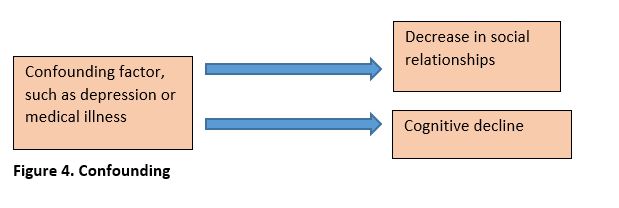Marij Zuidersma, Jisca S Kuiper, Sytse U Zuidema
 Good social relationships are important for people’s happiness and well-being, but they also appear to be good for your health. In the current systematic review and meta-analysis we evaluated whether good social relationships are associated with maintaining cognitive performance in old age.
Good social relationships are important for people’s happiness and well-being, but they also appear to be good for your health. In the current systematic review and meta-analysis we evaluated whether good social relationships are associated with maintaining cognitive performance in old age.
Cognitive performance
Cognitive performance comprises the brain-based skills we need to carry out any task from the simplest to the most complex. It involves amongst others learning, memory, planning, problem-solving, speed of thinking, paying attention and concentration. With increasing age cognitive performance declines. For some people, this decline comes faster than for others. People with poor cognitive performance are at higher risk of developing dementia and problems with performing daily activities. Currently, there are no effective treatments to delay the onset of cognitive decline. Therefore, it is important to identify modifiable factors that might delay the onset of cognitive decline.
Social relationships
Social relationships include a broad array of aspects of people’s social environment. Aspects of social relationships can generally be classified into structural and functional aspects. Structural aspects relate to the structure of the social network, such as the size of the social network or the frequency of contact with friends and family members. Functional aspects relate to the function of the social network and the purpose of the relationships, such as someone’s perception of the quality of support provided by their network, practical aid or social support. Previous studies showed that people with good social relationships are physically and mentally healthier and live longer.
Results of the current systematic review and meta-analysis
The results of 34 studies obtained with a systematic literature search were pooled. The pooled results showed that people with poor social relationships had an 8-15% higher risk of cognitive decline than people with good social relationships. This was 8% for poor structural relationships, 15% for poor functional relationships and 12% for people scoring low on a measure of social relationships including both structural and functional aspects.
Potential mechanisms
Multiple pathways may explain the association between poor social relationships and cognitive decline.
- First, the ‘use it or lose it theory’ suggests that disengagement in social activities directly results in a decrease in cognitive performance, due to disuse of the brain (figure 1).

- Second, the ‘stress-buffering hypothesis’ suggests that good social relationships buffer the adverse impact of stress on the brain, thereby maintaining the cognitive performance (figure 2).

- Third, the ‘main-effect hypothesis’ suggests that good social relationships motivate positive health behavior, resulting in maintaining cognitive performance (figure 3).

- Fourth, the association may be confounded by a third factor. That is, poor social relationships and cognitive decline are caused by a common underlying factor, which creates an artificial association between them. For instance, depression is known to have a negative impact on both social relationships and cognitive performance. Also, a severe medical illness may impact both the ability to maintain social relationships as well as cognitive performance (figure 4).

- Fifth, ‘reverse causality’ may explain the association between social relationships and cognitive performance. That is, early deficits in cognitive performance may have a negative impact on social relationships (figure 5).

Will improving social relationships also improve cognitive performance?
We cannot answer this question with certainty. If confounding or reverse causality play a role (i.e. figures 4 or 5), then social relationships are associated with, but do not cause cognitive decline. That means that changing social relationships will not directly impact cognitive decline. In this review we evaluated whether there are indications for confounding or reverse causality. If reverse causality were present, one would expect larger associations for studies including participants that are less physically or cognitively healthy. Also, one would expect larger associations for studies with shorter follow-up periods. Both were not the case in our review, so we found no indications for reverse causality. However, the association appears at least partly confounded because the association was smaller in studies adjusting for potential confounders. In addition to this, social relationships are likely intertwined with other lifestyle behaviors that may have a synergistic effect on cognitive decline. Future studies with different designs (for example a randomized controlled trial) should get more insight into the question whether social interventions would help maintaining cognitive performance.
Read more:
Kuiper JS, Zuidersma M, Zuidema SU et al. Social relationships and cognitive decline: a systematic review and meta-analysis of longitudinal cohort studies. Int J Epidemiol. 2016, DOI: 10.1093/ije/dyw089 [Free to access until 30 Sep 2016].
Marij Zuidersma is a post doc researcher at the University of Groningen, University Medical Center Groningen, The Netherlands. Her research focuses on risk factors for cognitive decline, in particular depression.
Sytse Zuidema is a professor of elderly care medicine at the University of Groningen, University Medical Center Groningen, the Netherlands. His research focuses on frail elderly and people dementia in nursing homes.
Jisca Kuiper is a researcher at the University of Groningen, University Medical Center Groningen, the Netherlands. Her research focuses on social functioning as risk factor for cognitive decline and dementia.
